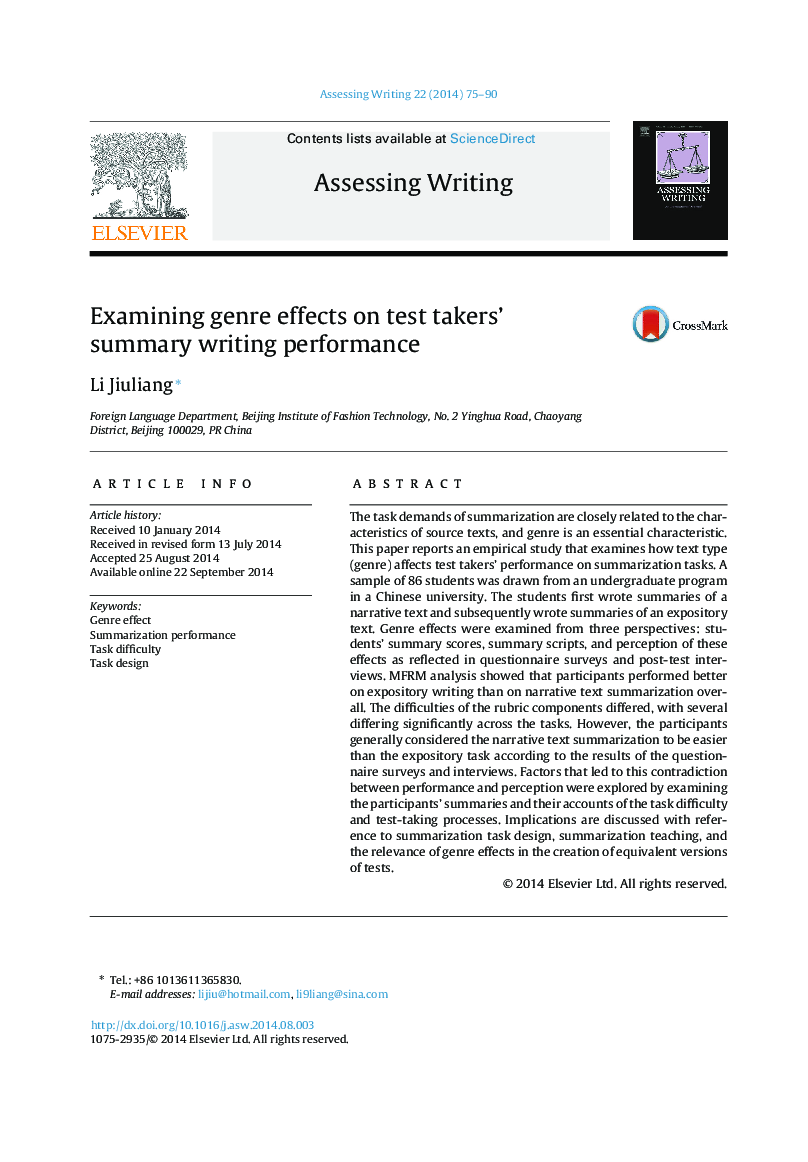| Article ID | Journal | Published Year | Pages | File Type |
|---|---|---|---|---|
| 344240 | Assessing Writing | 2014 | 16 Pages |
•Summarization performance in the narrative task was different from the expository.•The difficulty estimates of the rubric components also varied across tasks.•Students met more challenge in narrative summarization task than the expository.•But they considered the expository text as more difficult than the narration.•Students’ performance and perception may be a function of certain textual features.
The task demands of summarization are closely related to the characteristics of source texts, and genre is an essential characteristic. This paper reports an empirical study that examines how text type (genre) affects test takers’ performance on summarization tasks. A sample of 86 students was drawn from an undergraduate program in a Chinese university. The students first wrote summaries of a narrative text and subsequently wrote summaries of an expository text. Genre effects were examined from three perspectives: students’ summary scores, summary scripts, and perception of these effects as reflected in questionnaire surveys and post-test interviews. MFRM analysis showed that participants performed better on expository writing than on narrative text summarization overall. The difficulties of the rubric components differed, with several differing significantly across the tasks. However, the participants generally considered the narrative text summarization to be easier than the expository task according to the results of the questionnaire surveys and interviews. Factors that led to this contradiction between performance and perception were explored by examining the participants’ summaries and their accounts of the task difficulty and test-taking processes. Implications are discussed with reference to summarization task design, summarization teaching, and the relevance of genre effects in the creation of equivalent versions of tests.
